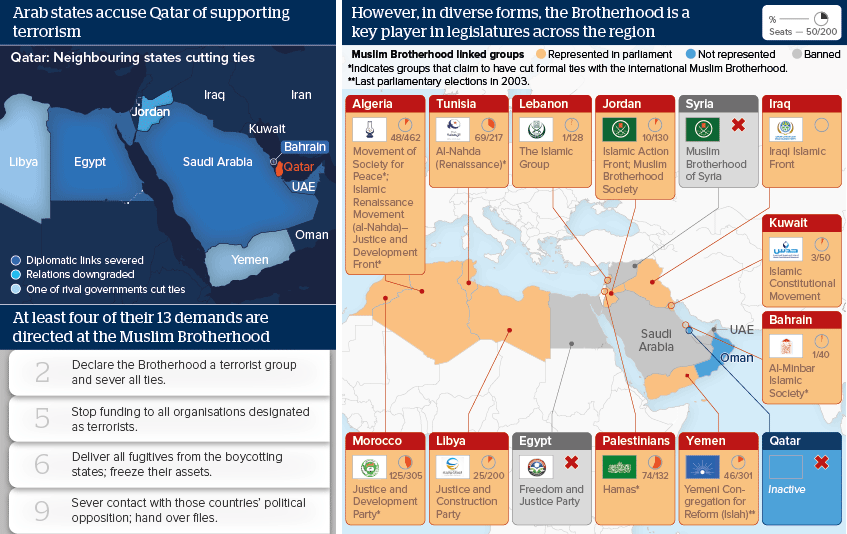Muslim Brotherhood demands deter Middle East democracy
The targeting of the Muslim Brotherhood by Arab countries boycotting Qatar belies the movement’s parliamentary role
Source: Media reports; Oxford Analytica
Outlook
With neither side showing any indication of backing down, the Gulf crisis is likely to be sustained. However, seeking to signal willingness to compromise, Qatar will pull back on some of its support for regional Muslim Brotherhood offshoots.
The deep antipathy towards the movement from the United Arab Emirates leadership, in particular, could drive a regional crackdown on underground branches. Given diplomatic links to the Trump administration, it could also influence US policy.
Fearing new sanctions, legal Brotherhood offshoots participating in parliamentary politics -- which sometimes constitute the only meaningful opposition -- will distance themselves further from the parent organisation, but will still be weakened as political players.
Impacts
- The boycotting states are likely to protect Palestinian Hamas for as long as it improves ties with their protégé Mohammed Dahlan
- Saudi Arabia will make another exception for the Islah party in Yemen, a key military ally of the Riyadh-backed government in Aden
- Tunisia’s Ennahda, with a plurality of parliament seats, will keep a low profile to avoid unwanted attention from Riyadh and Abu Dhabi
- In Morocco, the king’s strong position in domestic politics will limit Islamists, but also shield them from Gulf Arab pressures
See also
- Public distrust in Jordan’s government will increase - Nov 23, 2020
- Moussi’s rise could invite interference in Tunisia - Oct 20, 2020
- Manama can control internal anti-Israel backlash - Sep 15, 2020
- Muslim Brotherhood will survive the Middle East crisis - Jul 14, 2017
- More graphic analysis
